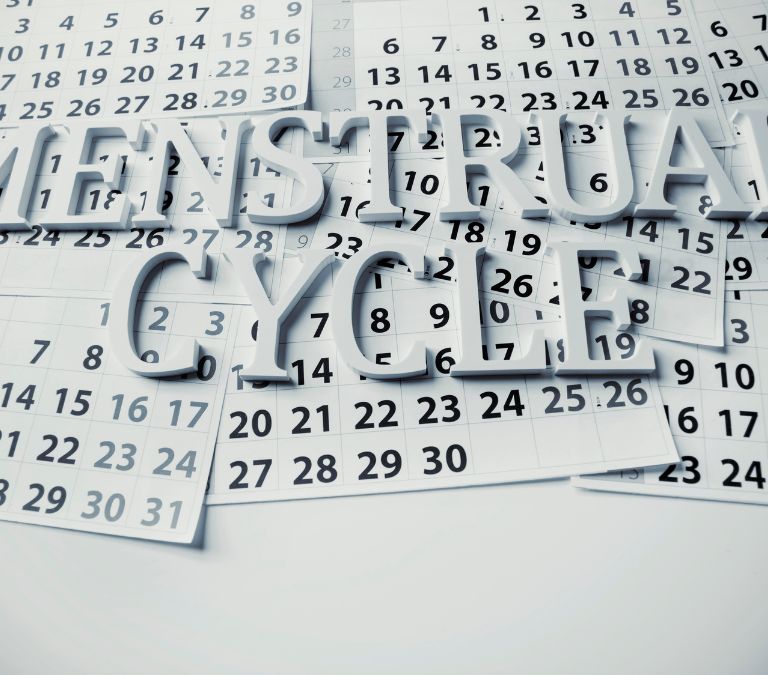It all started in the summer of last year. July, to be precise. Kimberly and I were on our way to work. We grabbed coffee, sipped some, and continued. We were on foot, and the heat was very severe (It was July, of course, what did I expect?).
Suddenly, I started to feel an unusual wave of pain and a sensation of hotness starting from my face down to my neck and chest. It was so excruciating I had to stop and wait under a tree.
The pains went on for a while. “Are you ok?” Kimberly asked me. “I dunno,” I replied. I quickly grabbed a water bottle from my handbag and downed it in seconds. “What is wrong with me?” “What could have caused this?” I asked myself. It stopped after a few minutes, and I was ready to head down to work again.
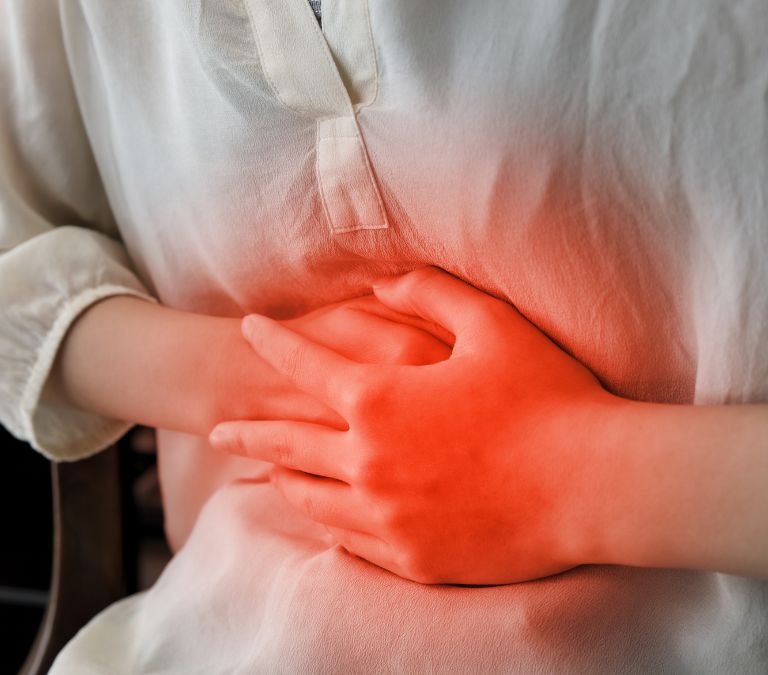
Kimberly advised that I see a doctor, but I didn’t see the need. At the office, it happened again, this time more painful and a little longer than the first. It happened twice within an hour. I also noticed I developed the urge to frequent the ladies to wee; still, I felt it was one of those things caused by stress.
That same month, my period became irregular, I never had irregular periods. It didn’t come as it was supposed to, and when I finally saw it, it came again after two weeks. Could there be something wrong with me?
The last straw for me was a particular night. Deven (my husband) and I were making love, but I had vaginal dryness, which was painful. He was very concerned and suggested I take a trip to see Chris (our family Doctor). When I tried to sleep, I had night sweats. Imagine being drenched in your sweat. It was so uncomfortable for me at that time. What could be wrong? I finally paid a visit to the family Doc the following day.
The trip to the Doc
I explained to him all that had happened. You need to understand that I don’t fancy seeing my doctor. Why? I have specific fears associated with a doctor’s office, syringes, their terminologies, a hospital, medical procedures, and whatnot. I find the experience of seeing a Doc anxiety-provoking after what happened to my Grandma.
After my explanation, he let me know that I may be experiencing perimenopause. “Peri, what now?” (See why I don’t like going to see him?) I didn’t understand at first what he meant, but after he further elaborated, I got the hang of it. “But Doc,” I said, “I’m just in my 40s. I’m 43, to be precise, and you know it. So how’s that even possible?” He said I was exhibiting some symptoms of perimenopause, which could also cause my irregular periods.
Understanding Menopause
Before now, I had little to no knowledge about the subject matter (I mean, why should I? I’m still in my 40s, aren’t I?). I never knew it had stages and that it also has a transitional period called perimenopause. I knew it had something to do with the inability of a woman to conceive, but that was all I knew about it.
Menopause is a stage in a woman’s life where her ovaries lose the ability to produce eggs, making reproduction impossible. It is that period of a woman’s life when she retires from making babies. Phew!
She also doesn’t experience the pains of menstruation anymore, the cramps, mood swings, and discomfort it brings. She becomes free from it all! It usually starts around 45-50, but some women may start in their early thirties or 40s, like in my case.
Menopause has three stages: Perimenopause, Menopause, and Post Menopause. This article will emphasize perimenopause, its triggers, and how to manage it.
My irregular periods – could it be perimenopause already?
After the Doc briefed me, I still had to do my research and observe my body closely to be sure of what exactly I was up against. He explained that my condition is a normal and natural one and that perimenopause could be the underlying cause (among other things) that could cause irregular periods. I also learned that it could cause one to see her period twice a month, as a regular period, heavy flow, or spotting.
Perimenopause is a menopausal transition stage a woman’s body goes through as she approaches menopause. During this stage, her estrogen levels (key hormones that develop secondary sexual characteristics) start to decrease, and symptoms such as hot flashes (the wave of pains I was feeling at the beginning) and irregular periods start to surface.
It lasts an average of 4 years, while for some women, it could last for a few months and ten years for others. But, when you go through a full 12-month period without menstruating, menopause is said to have officially begun.
However, perimenopause is not the only reason why periods become irregular. It could be a result of stress, birth control pills, or natural hormonal changes in the body, to mention a few. The best person in the position to clear the air for you is a Doctor.
My Monthly Visitor came twice this month
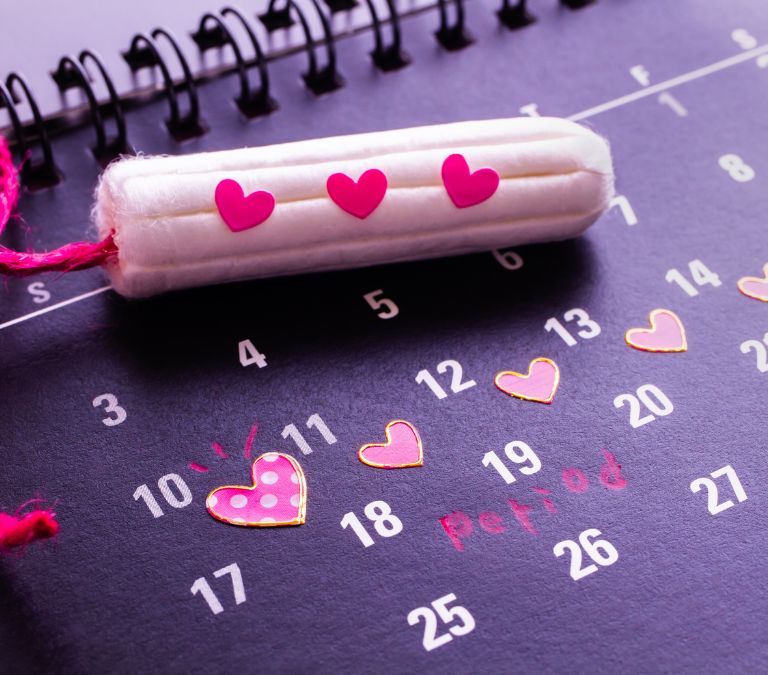
So is it perimenopause when you have two periods in one month? While the irregular period is the hallmark of perimenopause, it might not necessarily be the reason. Every woman’s body system is different, and so is their cycle.
Sometimes, you may notice a bit of irregularity in your cycle. Your period may last for more or fewer days, and it could come earlier or later. If your period is on the shorter end of the spectrum, you could see it twice a month (i.e., at the beginning and end of the month), and all these have no cause for concern. It’s 100% normal.
Nevertheless, suppose you notice bleeding outside your normal flow and probably suspect you have two periods in one month. In that case, the first thing is understanding the difference between spotting and menstrual bleeding.
For the former, you won’t bleed enough to fill your pad or tampon, which is usually brown or dark red, while for the latter, you should expect to soak through your pad every few hours, which is usually pink, brown, red, or dark red.
With that figured out, you can start to explore the cause of your bleeding. In my case, it was perimenopause, but other causes include: Puberty (in teens), stress, illness, weight gain or loss, uterine fibroids, birth control, pregnancy, STDs, Miscarriage, etc., and as I stated earlier, your best friend at this month would be a doctor.
What to do when periods are late?
As the months went by, I noticed that my periods came late. Thanks to Doc, I knew it was a menopause indicator for my case, but what do you do when your periods are late, and you don’t know their cause? The first simple answer is: Don’t panic!
Late periods don’t automatically connote unhealthiness or illness, so panicking would solve nothing at this point. A delayed period could result from various factors like pregnancy, excessive physical activity or stress, poor diet, ovarian changes, etc.
To determine which could be the case, you could first run a pregnancy test (if you have had sexual intercourse lately), and if not, you could visit the doctor or gynecologist to figure out the cause of the problem and treat it.
Perimenopause Symptoms
Perimenopause has two symptoms: the Early Stage and the Late Stage.
The early-stage symptoms include:
- Heavier/Lighter menstrual bleeding: while other factors may cause this, it is also a strong indicator of perimenopause. Your flows become heavier or lighter than usual.
- Frequent Periods: You will experience more frequent menstrual cycles. The period could be twice a month or more (spotting) in some women.
- The unpredictability of your menstrual cycle: Your period becomes irregular and more inconvenient.
The late-stage symptoms include:
- More than 85% of women experience hot flashes in their premenopausal stages. It is a wave or sensation of heat and hotness that flows through the body, from the face, neck, chest, and down to the abdomen. It can last a few minutes and occasionally happens several times a week or less.
- Night Sweats: Night sweats are hot flashes that happen at night. You tend to soak yourself in your sweat, which can be very discomforting and could make you lose your sleep.
- Sleeping Problems: The inconvenience makes it difficult to find sleep as hot flashes will always wake you up. The hot flashes can be very annoying and frustrating, especially when you have had a long day and need your precious sleep.
- Irritability: You become irritable and easily provoked.
- Depression and mood swings: Depression may come due to your lack of control over everything that is happening to your body. There is a 30% increased risk of depression when experiencing perimenopause. Although, all that decreases once you hit menopause.
- Vaginal Dryness: This could lead to painful sexual intercourse. Vaginal dryness occurs during your perimenopausal stages and lasts till menopause begins.
- Need to always use the bathroom: You get urinary urgency during this stage, so brace yourself and ensure you are not far from a restroom; it could hit you anytime.
- Tiredness: Although this is a common symptom of other things, it is also a perimenopausal symptom. How would one not get tired? From the frequent periods to the hot flashes, depression, etc.
What triggers hot flashes?
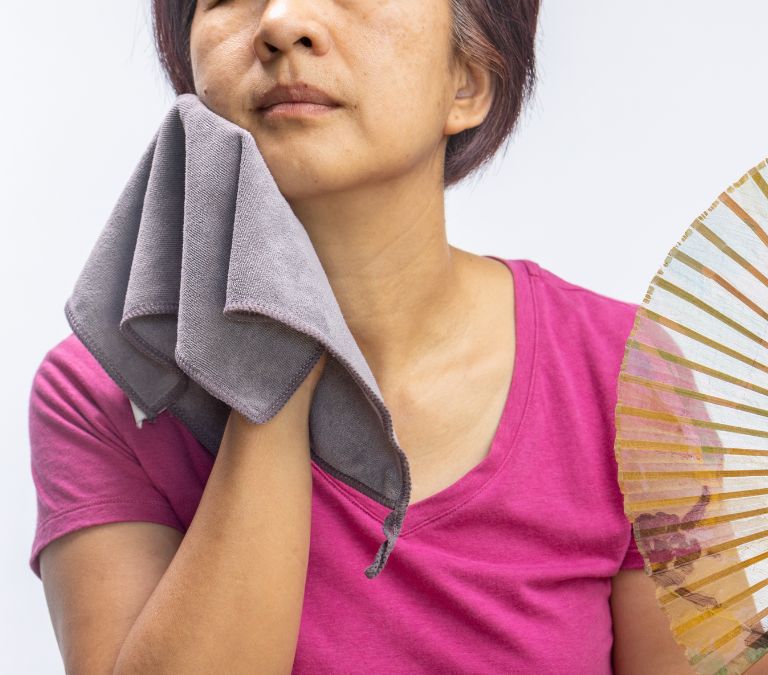
- Hot weather: the hot weather condition of an environment can cause hot flashes. Being overly exposed to sun and heat can cause the body to react and trigger a hot flash.
- Caffeine: Taking drinks and products like coffee that contain caffeine is a strong hot flash trigger. The rush of caffeine into the system would cause the hormones to stir up. Hence, do well to reduce your caffeine intake.
- Smoking: Whether you smoke or you are exposed to cigarette smoke, you are only endangering yourself and making the trigger-happy hot flash be on standby. Smokers tend to reach menopause earlier than nonsmokers, and of course, smokers are liable to die young.
- Spicy foods: Having hot meals that contain soup and stew, especially with hot pepper and chili powder, are strong hot flash triggers
- Alcohol: Unfortunately, if you are a woman approaching menopause, you may also want to cut down or completely stop the intake of alcohol. Trust me; you do not wish to experience hot flashes while taking strong alcoholic drinks. You can then continue with moderation when menopause has begun.
- Tight clothing: Having tight outfits could trigger hot flashes. So try to make sure that your clothes are exactly fitting for you and that they don’t need to be skimpy, tight, or short.
- Increased sugar intake: Taking lots of sugar or sugary meals increases the frequency and intensity of hot flashes. At this point, you need to try to reduce your sugar intake for your good.
All these and a few more are clear triggers of a hot flash. It could start any day and anytime. To make matters worse, you could be experiencing perimenopausal symptoms as early as your 30s(mid or late 30s precisely) for some women and an average age of 45. While it could start anywhere from 47 to 55 years for others, it all just depends on her body system.
Causes of night sweats before a period
Night sweats occur as a result of hot flashes at night. You’ll generally wake up with night sweats, a blanket, bedding, and even pajamas soaked with your sweat.
It usually occurs during your menstrual period or after it starts as you approach menopause in your mid-40s (and most times, 30s). So what causes them?
Night sweats have a range of causes other than perimenopause. If you notice that you’re having night sweats outside of your period, they could be a sign of one or some of the following:
- Presence of a mild or serious infection such as tuberculosis, osteomyelitis (an inflammation that occurs in the bones), HIV, cancer, etc.
- Stress
- Anxiety
- Excessive exercise
- Spicy meal before bed
- An overly warm bed
- Sleep apnea
- Heavy bedding
- Pain relievers like aspirin
- Steroids
Night sweats can cause serious discomfort and even your sleep. Identifying the cause of your night sweat is key to managing it. Sometimes, you need no medication for your night sweats. It could even be a result of a certain lifestyle of yours that needs to be changed to manage and stop it.
Experiencing night sweats just before or during your period is normal, and you may not need to worry, especially if you’re not exhibiting other unusual symptoms. If you start noticing signs of menopause before your mid or late 3os, however, you may need to see your doctor to identify its cause as this may lead to infertility and expose you to the risk of heart disease.
It is always a good idea to talk to your health service provider if your night sweats are persistent.
Why am I spotting when a period is due but no period?
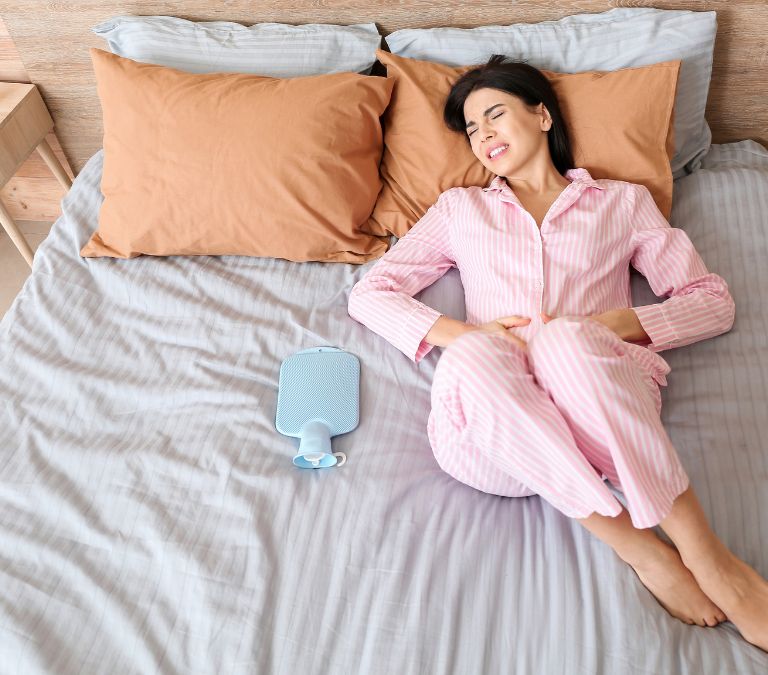
Several things interrupt your flow, making you experience spotting instead of your period when it’s due. As I pointed out, there are many causes of spots, and some are natural, and you need no reason for concern depending on your age, pregnancy, or other factors. A few causes of your spotting may be:
- Stress: if you have been overworking your body, you could get spotting instead of your period. Stressing your body physically, having an inadequate or unbalanced diet, emotional stress, or even illnesses can cause you to experience spotting. Stress could make your periods much more painful, and stop it entirely until you properly treat yourself for whatever is causing you stress.
- Pregnancy: When I was pregnant with my first son Jason, I was new to the whole reproduction. It was time for my period, but all I got were light drops of dark red blood. It continued for a while, and I thought I had a light flow. Little did I know that baby Jason had already started to form.
It was not until I started getting other early pregnancy symptoms like early morning sickness, nausea, swollen breasts, and fatigue that I ran a test and found all signs of pregnancy. I was three weeks pregnant at the time. So, run a pregnancy test if you suspect you may be pregnant.
- Aging: Aging could cause spotting rather than your normal flow. Young girls and teens between the ages of 10 – 15 who are just starting their periods may experience irregular periods and spotting. Their bodies are still adjusting to the hormonal change. The same applies to older women. We gradually approach menopause and tend to experience spotting, especially during perimenopause.
- Weight gain or loss: A significant amount of weight gain can cause spotting. If you’re overweight, your body tends to release excess amounts of estrogen, which can affect your periods. Also, losing so much weight can impact your hormones and stop ovulation, and without ovulation, seeing your period is impossible.
- STDs: sexually transmitted diseases like gonorrhea and chlamydia can cause spotting in women. It can be transmitted to an infected person through anal, vaginal, or oral sex. Spotting can happen as the infection progresses alongside other symptoms.
- Birth Control: Birth control methods such as pills, shots, or patches are likely to cause spotting. So if you took any birth control pills and are getting spotting instead of your normal period, you know the cause.
- Diseases like cervical or uterine cancer may make you see spots instead of your period when you’re due for it.
Why am I bleeding two weeks after my last period?
Bleeding between periods is any vaginal bleeding you may experience outside of a normal period. It may be similar to a normal period, heavier or lighter (spotting), and it could also happen once or last a few days. Many factors could cause this bleeding, for example, your hormone levels, an infection, injury, fibroids, miscarriages, inflammation of the cervix, or contraceptive methods.
It could be because your period just started for young girls (your body is still trying to adapt to the hormonal changes it is experiencing), or you’re going through the transitional period of menopause. Whatever the case, visit your doctor to help run a blood test and check your hormone levels. That way, you will know what is going on in your body and the best possible treatments.
Why is my menstrual cycle getting shorter?
Periods usually last between 1 to 7 days, and the average so far is four days. Going through this transitional period, I understood the difference between having a younger body and having one closer to menopause. Everything looks and feels different, down to my metabolism and periods.
In your 40s, the estrogen level and production in your ovaries reduce, leading to shorter, lighter, and irregular periods. So if you fall under this category, a shorter menstrual cycle could also be normal in your case. We are all nearing nature’s baby-producing retirement age, and there’s nothing we can do about it other than to allow the normal process to continue.
However, if you do not fall under this category or are exhibiting other symptoms aside from these, my biggest advice is to seek your health service provider and explain things to them.
Don’t be quick to assume that everything is abnormal or normal because your bleeding and the shorter menstrual cycle could be related to several other things.
The reason why your period may only last three days instead of 5
If you usually see your period for five days, but recently it lasted for just 3days, it may not be a cause for concern immediately as long as the flow is normal and not spotting. Who knows, it could be your blessing in disguise for that month. But, if it continues that way, over a while, something might be off.
Menstruation differs from woman to woman. Menstruation lasts anywhere from 3 to 7 days. If you bleed for three days, it may still be considered normal, as long as your menstruation is regular. Your estrogen is the hormone that creates endometrium each month, and your body might not have produced the normal amount of estrogen that month. Therefore, bleeding tends to be scant and may last for fewer days.
It may be for younger women (especially teenagers) because their body is still adjusting to puberty, while for older women, it signals a gradual approach to menopause.
So, if your short and irregular period is a new development and persists, it would be wise to consult your doctor about it.
How to manage perimenopause
Here are some local treatments I am currently implementing to manage my transition to menopause:
- Eat healthily: A healthy diet tremendously impacts your health in general. Eat foods full of fruits and veggies, with moderate amounts of whole grains, lean protein, fat, etc.
- Take multivitamin supplements: From time to time, take multivitamin supplements, especially those containing Vitamin D, A, calcium, zinc, and iron.
- Engage in light exercises: Avoid overworking yourself in the name of exercising. Take walks, go hiking, have strength and stamina training, etc. These light exercises are best for managing your body, not just through perimenopause, but would help keep your body in good shape in the long run.
- Lose some weight: Losing weight reduces hot flashes and night sweats. It also increases your energy level and keeps you fit.
- Limit alcohol and caffeine intake: You can reduce your intake of alcohol and caffeine or stop taking them entirely. It also helps reduce hot flashes.
- Avoid foods or activities that trigger hot flashes: Spicy meals or activities can trigger hot flashes. So try as much as possible to avoid them.
- Quit smoking: Smoking endangers your health and can make you approach menopause earlier than usual. Do yourself a favor by quitting it. Also, avoid being exposed to cigarette smoke as it could affect you, especially during this period.
- Try practicing meditation: Meditation helps calm the mind and body. It helps you manage irritability, anxiety, and depression. It also helps balance your body’s temperature. So try it out and enjoy its wonderful benefits.
Some frequently asked questions
Can perimenopause be treated?
No. Perimenopause is not a disease, and it is more of a natural transition that every woman must go through. It means it doesn’t need treatments. Instead, it needs proper management.
What is the best method of managing perimenopause symptoms?
Hormone replacement therapy, abbreviated as HRT, is the best management therapy for perimenopausal symptoms. It involves the process of relieving the symptoms of menopause by replacing the hormones that are at lower levels. It helps to reduce the effect of perimenopause symptoms.
Is depression a sign of perimenopause?
Yes. Depression is part of the symptoms of perimenopause, but it could also result from other health-related issues.
When do I visit my healthcare provider?
You should visit your doctor once you notice prolonged symptoms or any disturbing symptoms at all. Do not be quick to assume. See a doctor as soon as possible. They can walk you through the health challenge you may be facing, give detailed explanations and help you with the best solutions to your health problems.
What are the most common early symptoms of perimenopause?
The most common symptoms are irregular or unpredictable periods, hot flashes, and night sweats. You could also experience bleeding every two weeks or a shorter menstrual cycle.
Are tiredness and trouble sleeping signs of perimenopause?
Yes. Some women (like me) have reported sleep disturbances and tiredness during their menopausal transition. Notwithstanding, there could be many other reasons for your sleep disturbance and weariness.
Can perimenopause cause depression and mood swings?
Yes. It is also an indicator of menopause knocking. Most times, menopause happens at the wrong time in a woman’s life. She may be experiencing other challenges, so menopause adds to the list. It could trigger moodiness and depression in a woman because this stage of her life can be overwhelming for her to handle.
I am in my mid-30s, and my sex drive has reduced. Is this normal?
As we age, our sexual desires decrease. It is common for women in their 30s, 40s, and 50s. Although, this doesn’t apply to every woman, and some still have an active interest in sex and notice no change.
It is normal to lack interest in sex, especially at the said ages, but it doesn’t always suggest menopause. Other personal, biological, cultural, or psychological factors could cause.
Summary
So far, I’ve learned to always take my health seriously. I often research and frequent my doctor to always be up-to-speed on any stage of my transition period leading to menopause.
The knowledge I’ve acquired so far has been very eye-opening and insightful. Irregular periods in my case, result from perimenopause but may not necessarily be the same for much younger women or women having other issues.
Perimenopause is normal but can be stressful and frustrating if not properly managed. Proper management can help you regain your sense of control over your body’s well-being and boost your confidence to thrive as you prepare to move into the next stage of your life.
Menopause-like symptoms are irregular periods, unpredictable cycles, hot flashes, night sweats, irritability, or mood swings.
You need to feel cared for, heard, and supported during this period, so ensure that you surround yourself with people who can help you with these.
Because in the end, the biggest help we can get is simply confirmation that what we’re going through is normal and having people with us every step.
Even your doctor becomes your best friend!

